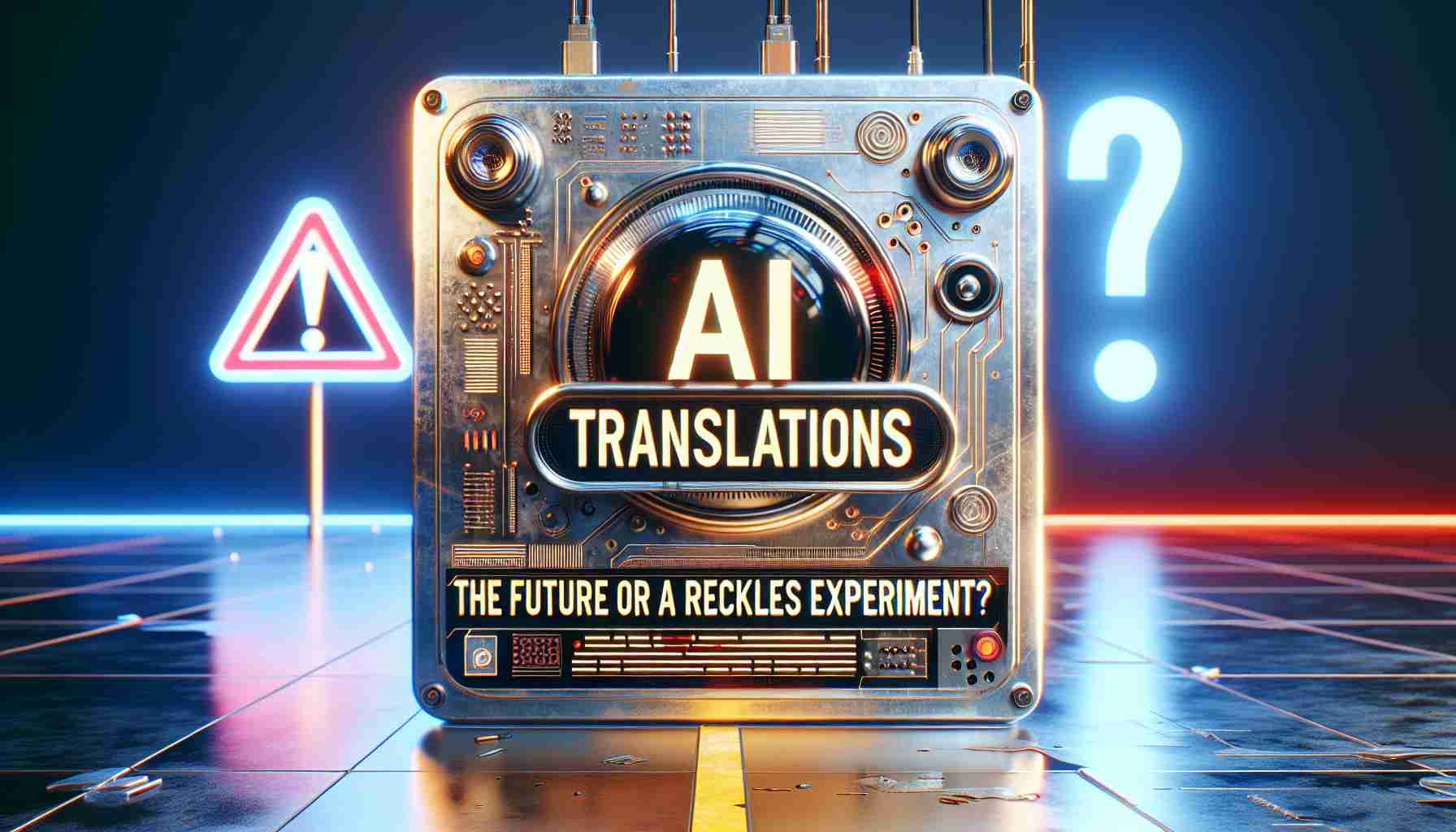Veen Bosch & Keuning, the largest publisher in the Netherlands, is set to experiment with AI technology to translate books into English. Recently acquired by Simon & Schuster, this bold initiative will focus on a select group of less than ten commercial fiction titles. The aim is to utilize artificial intelligence to assist with translations, raising questions about the future of literary adaptations.
Under this experimental plan, the publisher will not touch any literary works, emphasizing their approach limits itself to books where English rights are still available. A spokesperson from VBK confirmed that while AI will start the translation process, there will be a human editing phase, ensuring authors’ voices are not completely abandoned to machines.
However, the decision to restrict AI use to commercial fiction has drawn criticism. Critics argue this notion undervalues the creative effort behind writing and translation. Concerns have been raised about the potential for AI to generate translations that lack depth or accuracy, undermining the quality of literature available to English-speaking audiences.
Industry professionals express unease, underscoring that relying on AI for crucial aspects of translation could lead to misleading representations of original texts. With a significant number of translators reporting job losses due to such advancements in technology, the conversation around AI’s role in publishing continues to evolve, leaving many authors pondering the implications for their future work and reputations.
AI Translations: A Double-Edged Sword for Literature
The Future of AI in Publishing
As the literary world evolves, the integration of artificial intelligence (AI) in publishing is taking center stage. Veen Bosch & Keuning (VBK), the largest publisher in the Netherlands, is embarking on an audacious project to utilize AI technology for translating commercial fiction books into English. This initiative, recently bolstered by their acquisition by Simon & Schuster, aims to streamline the translation process while addressing the pressing demand for English translations of popular titles.
The Experiment’s Framework
Under this experimental initiative, VBK is focusing on fewer than ten commercial fiction titles. A key aspect of this strategy is the limitation to works where English rights are still available, ensuring that the literary works respected are not compromised. Notably, while AI will kickstart the translation, a significant human editing phase will follow. This blended approach seeks to retain the essence of the authors’ voices, mitigating fears of losing the artistry inherent in literary translation.
Criticism and Challenges
Despite the forward-thinking nature of this experiment, it has not escaped scrutiny. Critics argue that using AI for translations—especially in commercial fiction—risks diminishing the creative process involved in writing and translating. There are well-founded concerns that AI-generated translations may lack the nuance and emotional depth that human translators bring to the table. For commercial fiction, where character development and subtlety play critical roles, these issues could translate into a diluted reading experience for English-speaking audiences.
Pros and Cons of AI in Translation
Pros:
– Efficiency: AI can significantly speed up the translation process, making it quicker to bring popular titles to international markets.
– Cost-Effectiveness: Reducing translation times and costs may offer publishers a more profitable model for distributing their works globally.
Cons:
– Quality Concerns: AI translations may not capture the nuanced meanings and cultural contexts of the original text, potentially leading to misinterpretations.
– Job Displacements: The reliance on AI for translations is concerning for many professionals, with reports of job losses already surfacing within the translation industry.
Industry Trends and Predictions
As the conversation around AI in publishing gains momentum, industry professionals are contemplating the long-term implications of these advancements. Predictions indicate that while AI will continue to transform the landscape of literary translation, human expertise will remain indispensable. The balance between efficiency brought by AI and the essential depth provided by human translators will likely dictate future industry practices.
Use Cases and Innovations
Several publishers are already experimenting with AI in various capacities. From automated content generation to market analysis and trend forecasting, AI tools are gaining traction. However, true innovation will only be realized by combining the strengths of AI with the invaluable insights of human experience.
Market Analysis and Future Insights
The market for AI-assisted translations is on an upward trajectory. As globalization increases, the demand for translated literature is expected to grow. However, this surge presents a dilemma on how to maintain quality while meeting demand. Traditional publishing models may need to adapt to remain competitive in this evolving landscape.
Conclusion
VBK’s venture into AI-powered translations represents a significant step forward in leveraging technology within the publishing sphere. However, the accompanying critiques highlight a critical dialogue about the preservation of literary integrity in the age of AI. As the landscape continues to shift, stakeholders must carefully navigate the benefits and drawbacks of this technological evolution to ensure that the richness of literature remains accessible to a global audience.
For more insights into the future of publishing and technology, visit Simon & Schuster.
